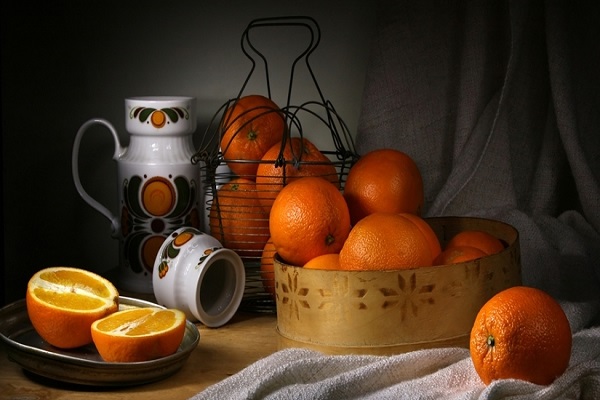
Follow us Now on Telegram ! Get daily 10 - 12 Interesting Updates. Join our Telegram Channel https://t.me/OhWomen
Download Telegram App before Joining the Channel
As we face this global pandemic, it is important that we stay indoors. maintain physical distancing and focus on building a strong immune system which is a crucial shield against infections.
While we are confined to the house, it is important we maintain a regular routine which includes daily exercise, eating a balanced diet, staying hydrated, maintaining good gut health, getting adequate sleep, and managing stress levels.
Our immune system works as the frontline defence mechanism against disease-causing microorganisms and protects us from all viruses and microbes that our body is exposed to. A healthy lifestyle along with a well-balanced diet containing all the essential macro and micronutrients is vital for optimal functioning and maintenance of the immune system.
Protein is a versatile macronutrient that sustains life and has a particularly important role to play in boosting immune function. Though we all know about the importance of protein, Indians are deficient in our protein intake. On an average an individual needs 0.8-1.0g of protein per kg Ideal body weight. Recommendations may vary depending on several factors such as physical activity, age, co morbid conditions like kidney disease etc. As per the General Consumer Survey (PRODIGY) conducted in 2015, 73 percent of our population is deficient in protein intake with 93 percent of our population being unaware about their daily protein requirements.
It is important to consume good quantity and quality of protein daily for the immune system to function at its best. A quarter of our plate at every meal must be protein.
A good quality first class protein is one with high digestibility and has all the essential amino acids required by the body. Sources: all animal products like eggs, meat, fish, poultry, milk, milk products like curd, paneer, whey. Proteins that are partially lacking in one or more essential amino acids eg, cereals and pulses are called incomplete protein.
Combinations of foods such as cereal pulse combination like idli, dosa, pongal, khichdi, dal rice etc. in 4:1 proportion helps improve the quality of protein in a vegetarian meal if you are unable to meet your protein requirements through diet alone, protein powders containing good quality protein can be included to bridge the gap. You can consult a qualified dietician to plan a diet tailor made to meet your protein and nutrient requirements.
vitamins which help boost immunity
Vitamin A
Vitamin A is an anti-inflammatory vitamin and plays a critical role in enhancing immunity. Beta-carotene is a precursor of vitamin A which when ingested is converted in the wall of the small intestine to vitamin A.
Sources of beta carotene-carrots, sweet potatoes, red and yellow peppers, tomatoes, dark green leafy veg, pumpkins, asparagus, mangoes, drumstick leaves.
Vitamin B6
Vit B6 plays an important role in supporting biochemical reactions of the immune system.
Sources: fish, poultry, nuts, chickpeas, dark green leafy veg, bananas, papayas.
Vitamin B12
Vitamin B12 is a vital nutrient in the formation of healthy red blood cells and DNA synthesis. Vitamin B12 along with folic acid plays a crucial role in maintaining a healthy immune system.
Sources: fish, meat, poultry, eggs, milk, and milk products.
Vitamin C
Vitamin C is the most powerful antioxidant known to boost immunity. It also helps in the regeneration of Vitamin E.
Sources: Indian gooseberry (amla), guava, orange, sweet lime, lemon, bell peppers, berries, red amaranth leaves, cashew fruit, kiwi, strawberry, broccoli, etc.
Vitamin D
Vitamin D is essential to immune function and helps regulate the body's immune response. You can get your dose of Vit D by standing in sunlight either on your terrace or balcony without sunscreen during the day preferably between 11 a.m. and 1 p.m. If your levels of Vit D are low, consult your physician who may suggest a Vit D supplement.
Sources: Egg Yolk, cod liver oil, mushrooms, sardines, fatty fish
Vitamin E
Vitamin E is a fat-soluble vitamin that plays a key role in regulating and supporting immune system function. It prevents oxidation of Beta Carotene and Vit A in the intestine.
Sources: nuts such as almonds, pistachios, seeds like sunflower seeds, flax seeds, garden cress seeds In addition to protein and vitamins, certain minerals like zinc, magnesium, selenium along with omega 3 fats play a key role in boosting immunity.
We can also give our immune system a boost by adding anti-viral foods easily available in our kitchen like garlic, fennel, ginger, cloves, tulsi, turmeric and coconut oil.
Making simple tweaks to your diet by including immune boosting nutrients to help to fight infections. Lastly, do not forget to maintain hygiene by washing hands regularly, wear masks when out maintain physical distancing.
Source - IANS